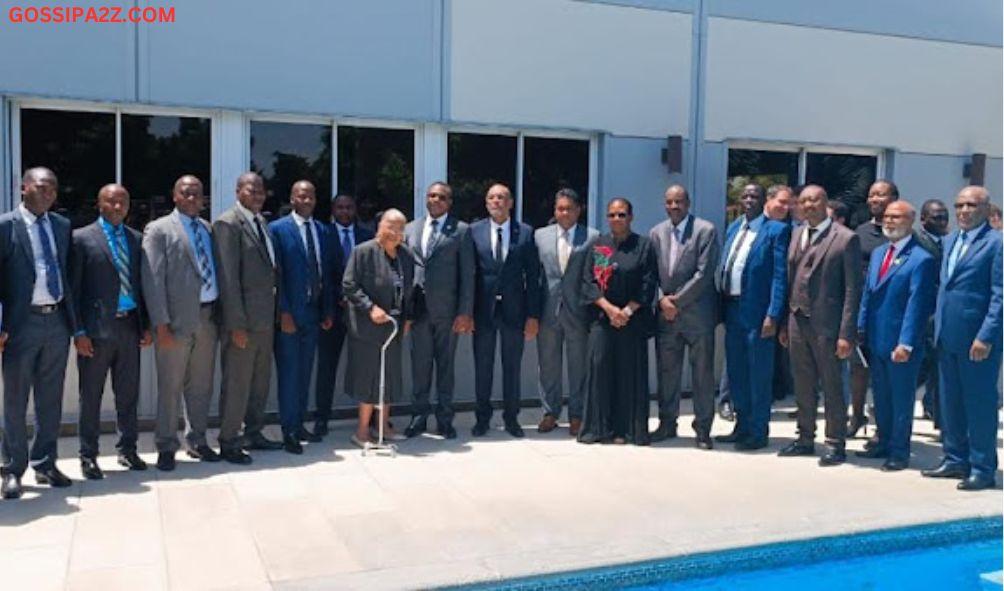Kenyan Team Back from Haiti Security Assessment
A Kenyan security team on an assessment mission in Haiti returned home on Sunday ahead of a succession of scheduled meetings with Haitian authorities.
According to sources, the committee intends to brief President William Ruto on their findings before a decision is made regarding the next steps.
If a decision is made to dispatch the police to troubled Haiti, they will also confer with parliamentary teams.
If a decision is made to send police to combat the gang violence that has ravaged the Caribbean nation, a succession of events will take place.
These include identifying the team to be recruited, training them, providing them with equipment, financing them, and sending them to Haiti.
During their tour of Haiti, the team conferred with Prime Minister Ariel Henry, members of his government, and leaders of the High Council of the Transition (HTC).
This precedes the planned deployment of one thousand Kenyan police officers to combat the gang violence that has devastated the Caribbean nation.
Kenya will head an international police force whose mission will likely commence within a month.
The delegation was in Haiti until Wednesday to assess the country’s deteriorating security.
The delegation also met with the leadership of the Haitian National Police (PNH) to discuss the agency’s weaknesses and the security situation, according to officials.
On August 22, they also conferred with police chief Frantz Elbe, among others.
The Haitian media reported that the delegation was also shown around Port-au-Prince and other gang-affected areas.
The force is intended to supplement Haiti’s inadequate and underresourced police department, which has approximately 10,000 officers for a population of over 11 million.
“We are here to assess the needs of the Haitian National Police, better understand the situation, and do our best to assist the Haitian people,” said a Ministry of Foreign Affairs official, George Orina.
Noor Gabow, Deputy Inspector General of the Administration Police, led the squad.
Before departing for Haiti on Sunday, the Kenyan delegation convened with countries and organizations in New York to determine the best way to assist Haiti.
According to the most recent U.N. statistics, between January 1 and August 15, more than 2,400 people were reported slain, more than 950 were kidnapped, and another 902 were injured in Haiti.
The Kenyan officials stated that the countries they met with recognize “the Haitian demands and the urgent need to end a situation that is paralyzing the functioning of the country and endangering the future of its citizens.”
The government of Henry initially requested international security assistance in October of last year, but despite repeated calls from the United Nations, the request went unanswered until Kenya announced last month that it was prepared to lead such a force.
After the Kenyan assessment, the United Nations Security Council will vote to dispatch a security force to Haiti.
Human Rights Watch and Amnesty International have demanded that the multinational force include safeguards to prevent human rights violations.
Previous interventions left behind a devastating cholera epidemic and more than a hundred sexual assault allegations.
Additionally, countries have been hesitant to support Henry’s unelected government.
Henry, who is under international pressure to broaden political consensus and increase participation in decision-making, has vowed to conduct elections once security has been restored.
Henry had reiterated the need to establish free movement of people and products, and lessons had been learned from previous missions in Haiti, according to the government statement.
“Kenyan troops have extensive experience, having served in Kosovo, Yugoslavia, Sierra Leone, East Timor, Somalia, Sudan, and Angola,” the report stated.
Other regional nations have pledged to contribute police officers, bringing the total to 2,000.
Henry stated that he spoke with President William Ruto on August 7 to praise Kenya for its “demonstration of fraternal solidarity.”
The Caribbean nation is in a severe security, political, and humanitarian crisis due to a surge in gang violence.
As the search continued, gang warfare deteriorated, resulting in hundreds of kidnappings and the emergence of vigilantes who took justice into their own hands.
Today, armed factions control an estimated 80 percent of Port-au-Prince, the capital of Haiti.
Kenyan Team Back from Haiti Security Assessment
